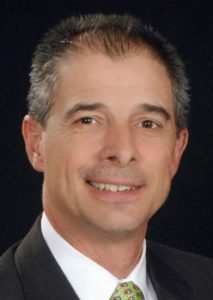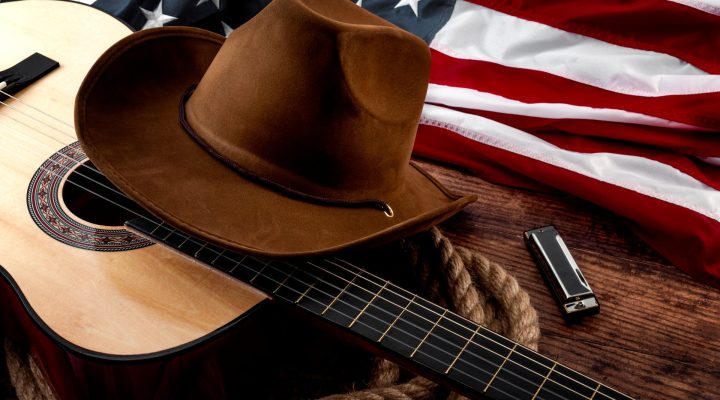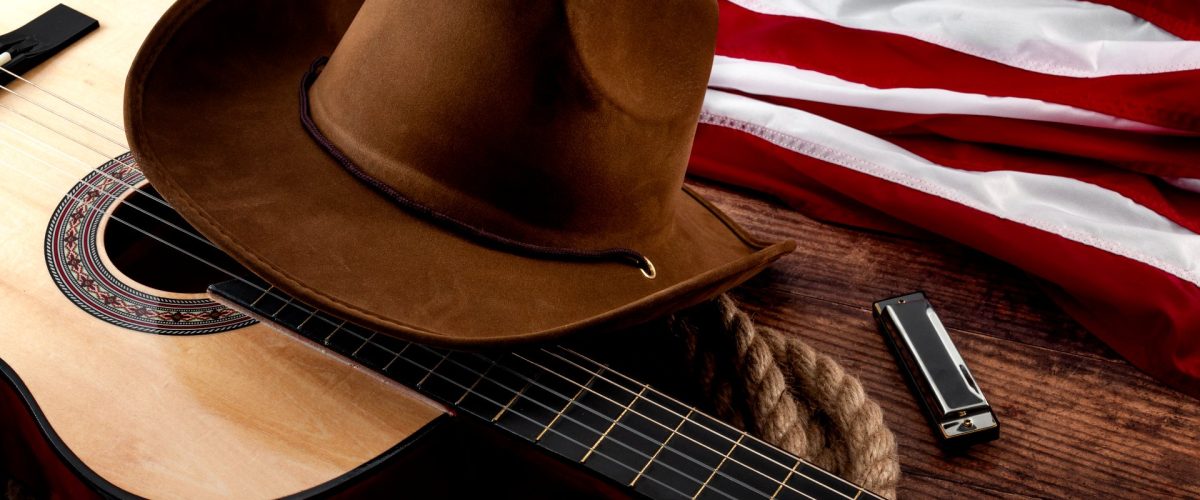I’ve been preaching the need for a “theology of reality” for years. We need the same kind of revolution in country music.
My first musical love was the drum set, but when I got to middle school band, my dad wanted me to learn a “church instrument,” so I forsook all that rhythmic evil for the trumpet. Along the way, I picked up a few other instruments, and with all of that came an appreciation for a wide variety of musical styles. The radio in my truck has presets — left to right — for classical, NPR, pop, classic rock, country.

Russ Dean
I am not sure when I started leaning into that last preset, but if I’m not listening to NPR, and especially in all my hours in the wood shop, there usually is a little twang in the air. I’m not so much attracted by three chords and the scooped pitches that stereotype some country music as I am with the stories the music tells.
The narrative is important for country music, and they weren’t kidding when they said most country songs have something to do with a woman, a dog or a truck! The plot lines reel the listener in, and the double entendre that has come to characterize modern country music is wickedly clever.
The use of narrative, however, may tell a deeper story, one with troubling implications for a divided nation.
Listening to country music, two themes quickly emerge. You cannot miss them. First, much of the music is overtly religious — and this means exclusively Christian and specifically traditional in theological language and imagery. The website “theboot.com” says: “Everyone from Hank Williams to Carrie Underwood has mentioned God and faith in a song; in fact, religion and country music are so intertwined that the Inspirational Country Music Awards are held each year.”
Vince Gill made famous “Go Rest High on the Mountain,” and Carrie Underwood sings “Jesus Take the Wheel.” There are other fully religious messages but with no specific biblical references.
Matt Stell sings of meeting the girl he’d been praying for all his life:
I ain’t the church pew regular twice on Sunday quote you the Scripture kind …
[but] every single day, before I knew your name,
I couldn’t see your face, but I prayed for you ….
A few Baptist hymns, re-mixed for dobro and banjo, have become hits, but more prevalent are the ubiquitous images that show up in otherwise “secular” songs. Mentions of heaven and prayer, some version of divine intervention and the Bible are too numerous to count.
Chris Lane sings about the girl with the Bud Lite next to him at the bar:
What’s your name? What’s your sign? What’s your birthday?
What’s your wrist tattoo Bible verse say?…
One might think a Baptist minister would celebrate any Christian witness, but I have to wonder if there is more at stake here. The nation is becoming decidedly more secular, yet the prevalence of Christian themes, for this audience, persists.
The question is, how many people — in love with these songs about prayer and worship — actually pray and worship?
Is someone trying to convince us? Trying to tell us something we don’t really believe? Is the nostalgia intended to take us back to some simpler day when people actually went to church on Sundays and kids started each school day with the pledge and a Christian prayer? The question is, how many people — in love with these songs about prayer and worship — actually pray and worship?
The other prevalent theme is a glorification of the rural life. Like a lot of other listeners, I love Kenny Chesney’s “She thinks my tractor’s sexy ….” But how many Chesney fans have ever sat on a Farmall or a John Deere, much less planted an actual field or harvested any crop? An increasing number of Americans don’t even cut their own grass.
A clever love song by Billy Currington pushes all the country buttons:
I was sitting there, selling turnips on a flatbed truck,
crunching on a pork rind when she pulled up ….
I have to admit to enjoying a good pork rind, but how many can actually relate to anyone selling turnips out of a truck? Before the song is over, we get introduced to dusty country roads, Georgia heat, Miss Bell and her sweet tea. Sounds like the average experience for the average American, right?
Blake Shelton pretty much puts it all together when he sings:
Right outside of this one church town” (It’s not a one-stop-light town.)
there’s a gold dirt road to a whole lot of nothin’.
We turned the dirt and worked until the week’s done,
we take a break and break bread on Sunday.
And then do it all again, ’cause we’re proud to be from God’s country ….
In 2019, reporting for “Markets Insider,” Sara Lepley said: “… farmers and ranchers themselves make up just 1.3% of the employed U.S. population. … Meanwhile, back in 1840, workers in the agriculture industry made up 70% of the American workforce.” The website www.census.gov reports on the breakdown of Americans living in cities and in “the country”: “Urban areas make up only 3% of the entire land area of the country but are home to more than 80% of the population. …”
I drive a pickup truck, prefer blue jeans and love country music, so I can be as enticed by the nostalgia as any other Southern redneck. But I’m afraid we’re being sold a dangerous narrative, packaged so subtly that few would ever suspect it as racist propaganda. But it may be just that.
When I’m listening and singing along, as Robert Browning might say, “God’s in his heaven / All’s right with the world.” In this narrative, we’re all people of the land, hard-working, flag-waving, gun-toting, God-fearing, church-going, tithing, white, Christians. That’s America!
Only, it’s not.
I’m afraid we’re being sold a dangerous narrative, packaged so subtly that few would ever suspect it as racist propaganda. But it may be just that.
The bill of goods I’m afraid we’re being sold is the quiet yearning for a mostly white, mostly Christian culture that exists, in truth, only in some naïve and utopian version of the good ol’ days.
America always has been more than this, and the data make it increasingly clear this “land of the free and home of the brave” is rapidly becoming what our forebears intended. In a bold experiment called democracy, they dared to open the borders to those “tired … poor … huddled masses yearning to breathe free.” Well, we are here. (And still coming!)
While the U.S. population grew by 20 million in the last census decade, the white/non-Hispanic portion decreased by 4%. A full decade ago, CBS News reported, “For the first time in its history, the United States does not have a Protestant majority ….”
And what about that urban/rural, city/country divide? In 2018, whites made up 78% of the rural population, while racial and ethnic minorities comprised 44% of urban centers. And in the United States, as around the world, urbanization is increasing. The estimated urban population in 2018 was 55% worldwide, projected to grow to 68% by 2050.
What this means is that this utopian Christian and rural world is getting smaller and more concentrated in its whiteness — and less representative of the world — day by day. Yet in all those clever country songs, it’s “God’s Country,” and all’s right with the world.
If this is the nation you’re being “shown” as it seeps into your unconscious brain, you will experience a cognitive dissonance when you experience the actual world. That world, the real world, is less Christian and much more diverse — religiously, ethnically and culturally. It cannot bode well for our future when the narrative becomes more powerful than the reality.
Increasingly, our “bubbles,” which include our musical presets, are selling us the narrative, so kudos to Thomas Rhett for his “Life Changes”:
I remember the day I told my Daddy and Mama,
‘You’re gonna have a grandkid, yep
From Uganda! That’s right, we’re adopting,
And she is the cutest little girl that you’ve ever seen …’
Ain’t it funny how life changes?
You wake up, ain’t nothing the same, and life changes.
You can’t stop it, just hop on the train, and
You never know what’s gonna happen.
You make your plans, and you hear God laughing.
Life changes, and I wouldn’t change it for the world.
And I wouldn’t change it for the world.
Life changes. Maybe country music can, too.
Russ Dean serves as co-pastor of Park Road Baptist Church in Charlotte, N.C. He holds degrees from Furman University, Southern Baptist Theological Seminary and Beeson Divinity School. He and his wife, Amy, have been co-pastors of Park Road since 2000. They are parents of two sons. Russ is active in social justice ministries and interfaith dialogue. He is author of the new book Finding A New Way.
Related articles:


